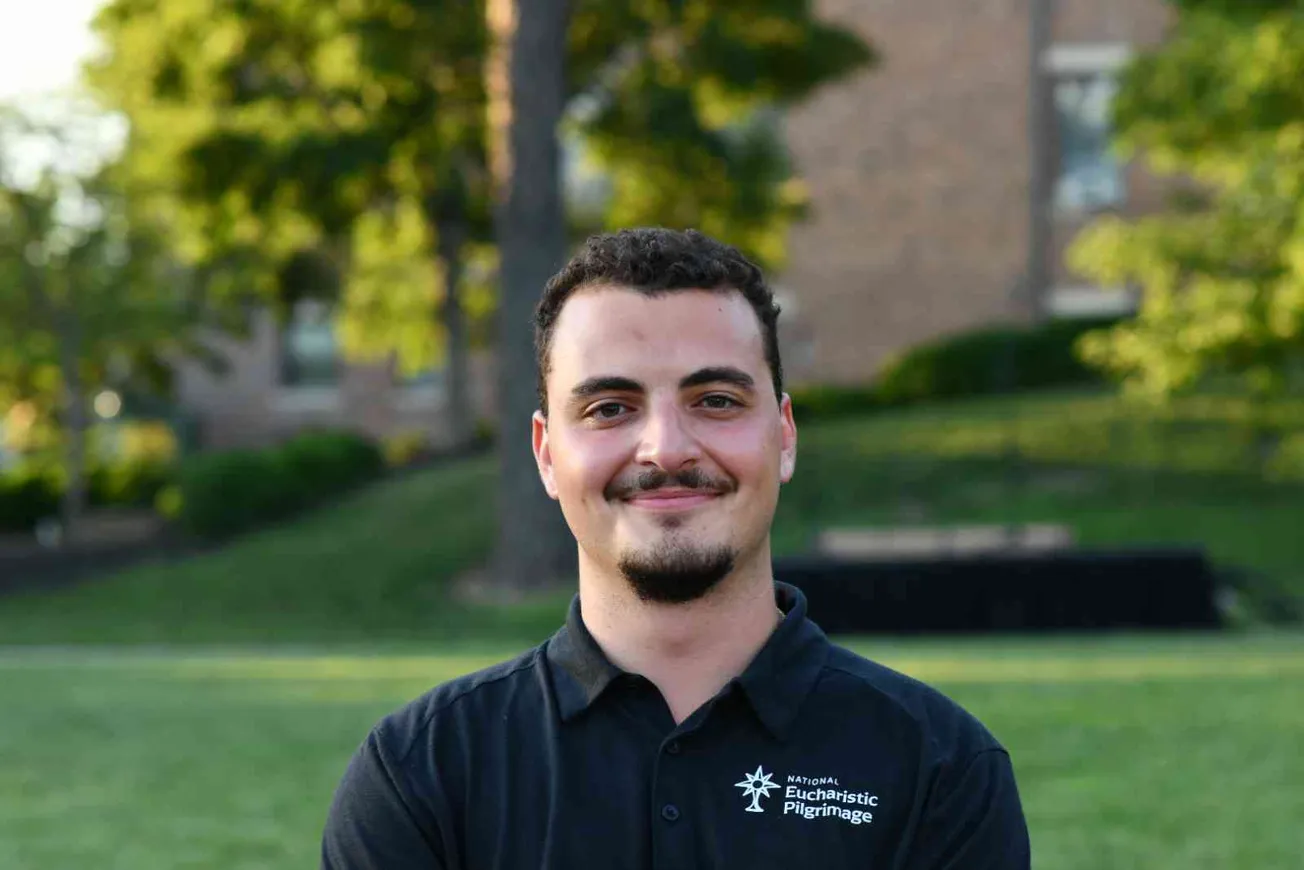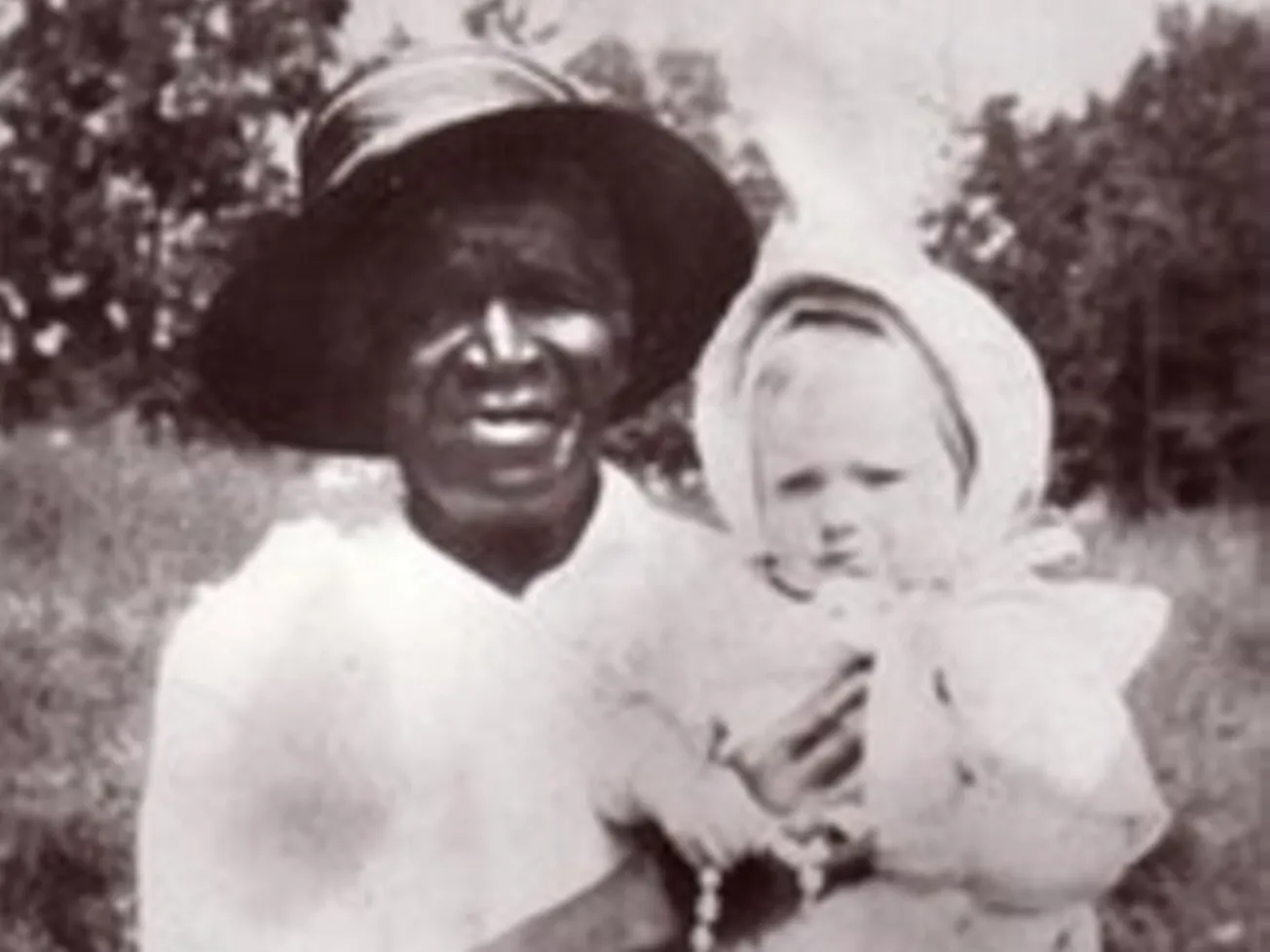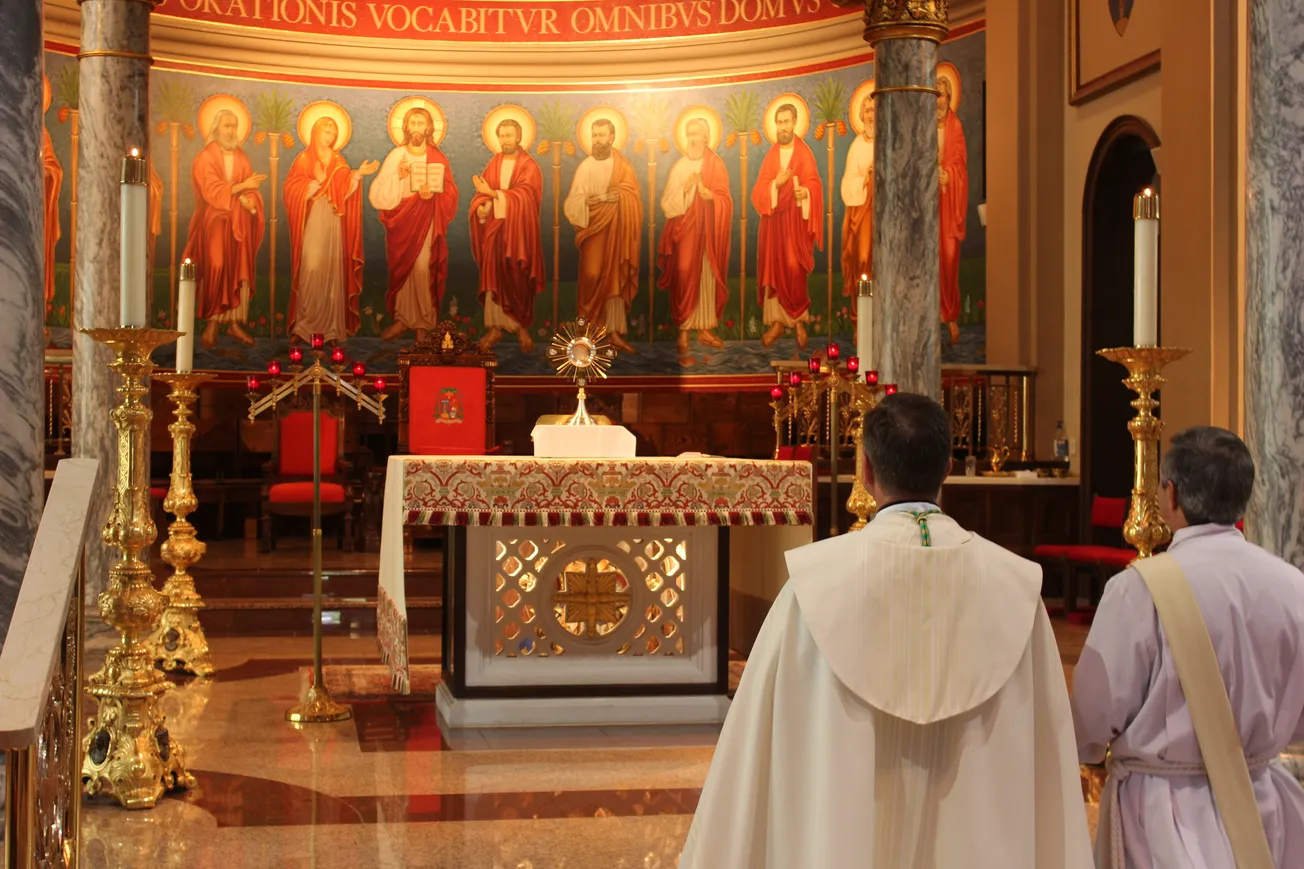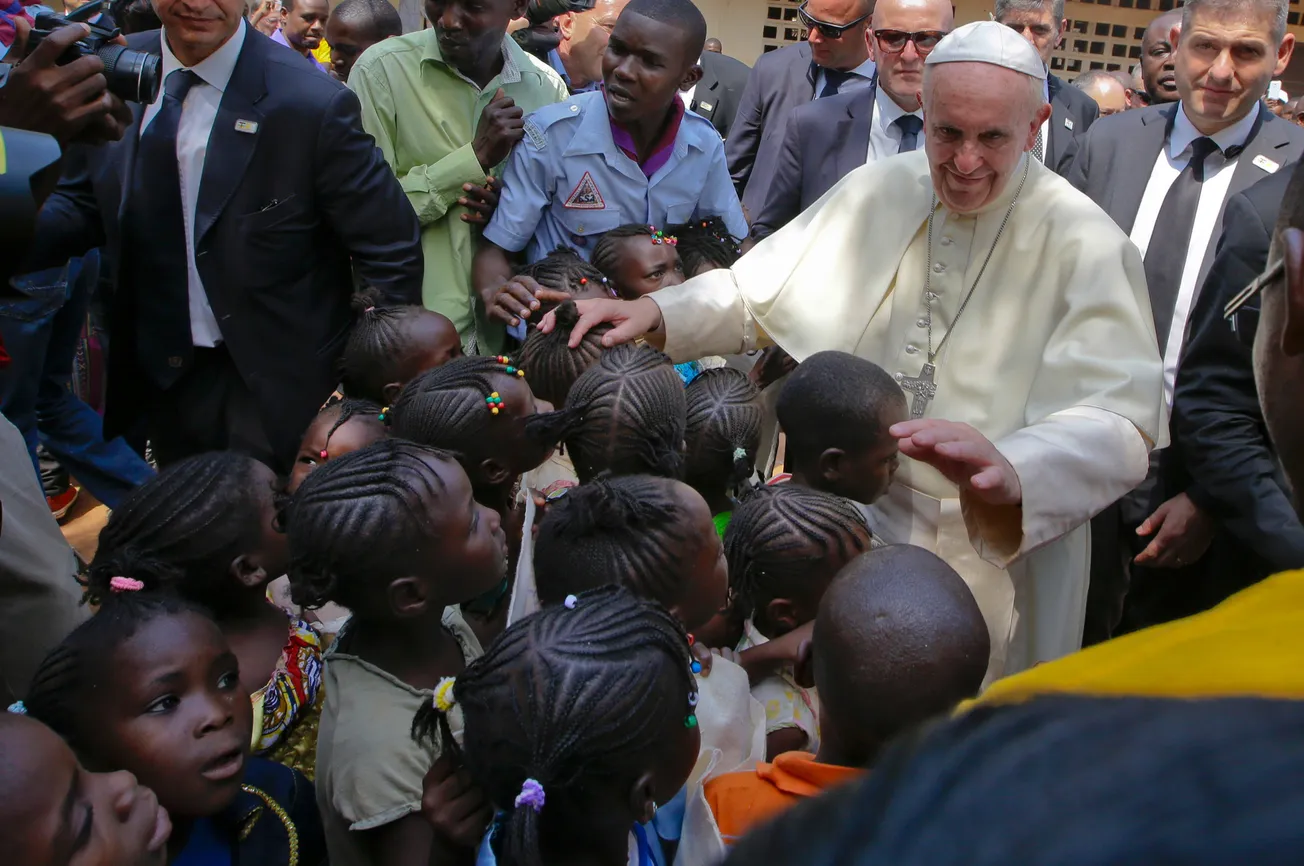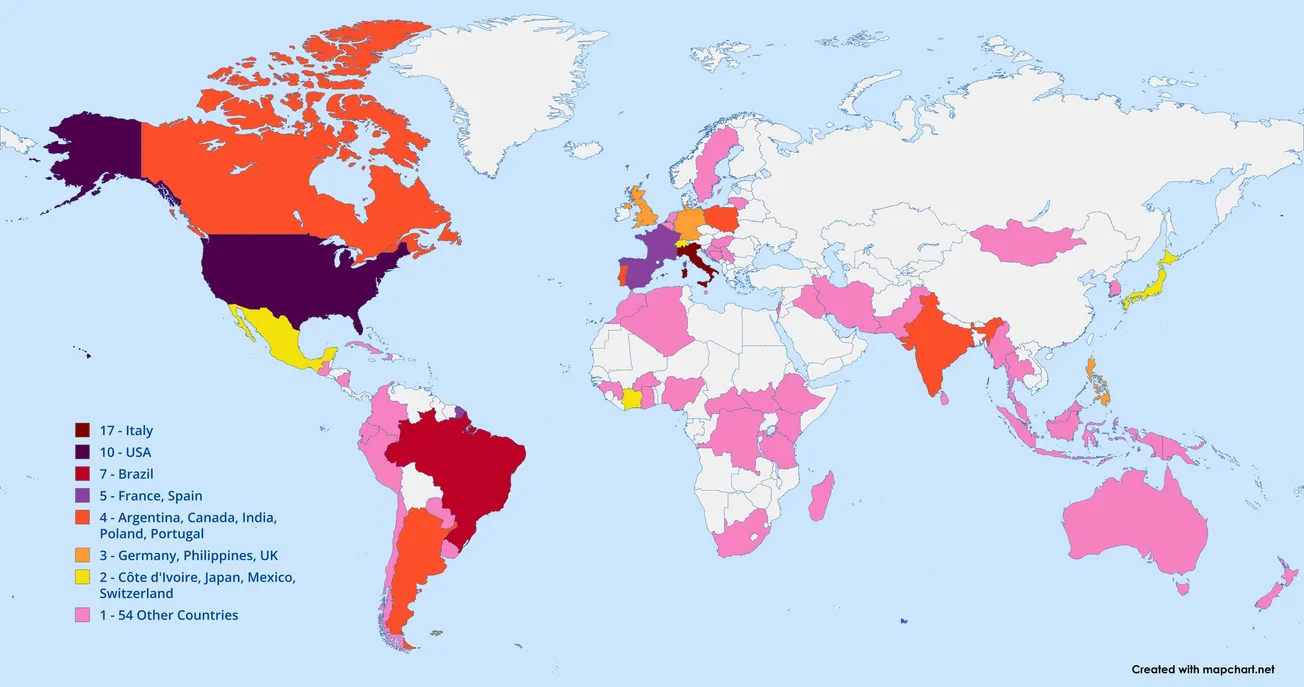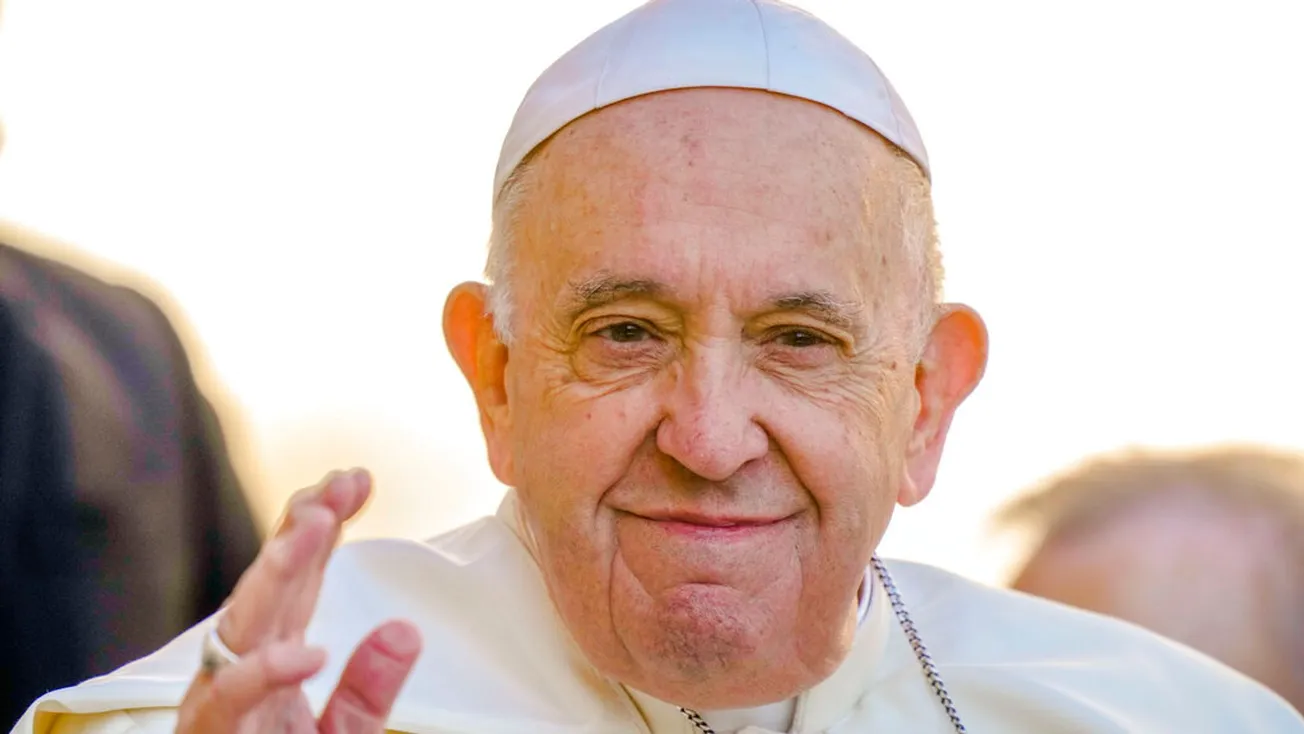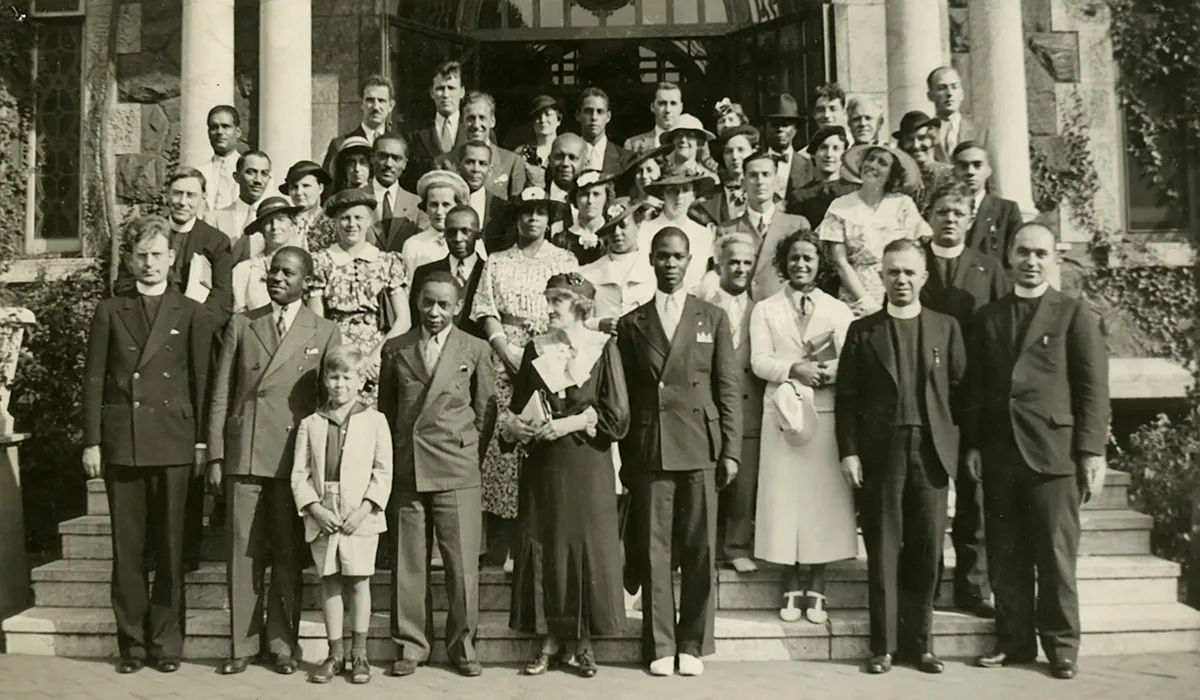In the USCCB’s 2018 letter Open Wide Our Hearts, the U.S. Catholic bishops center their message against racism around the words of the prophet Micah:
“You have been told, O mortal, what is good, and what the LORD requires of you: Only to do justice and to love goodness, and to walk humbly with your God” (Micah 6:8).
We at Modern Catholic Pilgrim (MCP) believe taking the prophet at his word is the best way to pursue the work of racial justice and reconciliation as the Catholic Church in the United States.
To that end, we are collaborating this October for the second time with the Archdiocese of Louisville’s Office of Multicultural Ministry on a pilgrimage for racial justice. Later the same month, we will co-host the first St. Martin de Porres Pilgrimage for Racial Justice and Reconciliation with that great saint’s national shrine in Memphis.
Last year in Louisville, Archbishop Joseph Kurtz, Bishop John Stowe, and Bishop Emeritus Edward Braxton guided the Catholic community through three days of pilgrimage-related events under the title A Cry from the Mountain, which was inspired by the work and writings of Thomas Merton and Martin Luther King, Jr.
This year, the pilgrimage title is Walking Together, inspired by Servant of God Thea Bowman’s words from her address to the U.S. bishops in 1989:
“[I]f we walk and talk and work and play and stand together in Jesus’ name – we’ll be who we say we are – truly Catholic.”
The first pilgrimage events will take place Friday, October 15th and Saturday, October 16th. That Friday evening, we will gather for an evening pilgrims’ blessing prayer service at one of Louisville’s historically Black Catholic churches. Then, Saturday morning, we will gather at the Cathedral of the Assumption for the beginning of a short walked pilgrimage through downtown led by students from Presentation Academy who will share the interconnected histories of the city, the Sisters of Charity of Nazareth, the order’s founder Mother Catherine Spalding, and slavery and racial injustice. The pilgrimage will conclude in prayer at Presentation Academy before we share lunch, followed by a discussion led by panelists from the community. We will conclude with Mass. All are welcome to join us and can sign up here.
Two weeks later, in the early afternoon of Saturday, October 30th, we will gather in Memphis at the Cathedral of the Immaculate Conception to begin a seven-mile walked pilgrimage through the city as we pray for the intercession of St. Martin de Porres, the patron saint of racial reconciliation. On the pilgrimage, we will have the opportunity to visit the grave of Sr. Thea Bowman, pray in silence outside the Lorraine Motel where Martin Luther King Jr. was assassinated—now the National Civil Rights Museum—and conclude with Mass, dinner, and fellowship at the National Shrine of St. Martin de Porres in downtown Memphis. Again, all are welcome to take part by signing up here, and pilgrims are invited, as needed, to join us in Memphis at one of the stops along the way to limit the distance walked.
These two major pilgrimages serve as the pillars around which other MCP pilgrimages for racial justice and reconciliation have taken place around the country, such as in San Diego and Minneapolis.
Our hope with hosting these pilgrimages is to do precisely what Micah says our God asks of us. We hope to do justice by bringing together communities to pray that all might be treated as brothers and sisters in Christ. We hope to love goodness by celebrating the entire Body of Christ for each member’s unique contribution. Finally, we hope to walk humbly with the Father by actually walking with His Son, Jesus Christ, on pilgrimage.
A tremendous precedent has been set for us in this last regard by the “Road to Emmaus” passage in Luke’s gospel. In the passage (Luke 24:13-35), two disciples of Christ are leaving Jerusalem after witnessing the Crucifixion. They encounter the risen Christ without recognizing him and pour out their confusion and disappointment in the events of the last few days. Christ invites the disciples to discuss Scripture and prayer as the three of them walk the seven miles to Emmaus in the heat of the day.
When we come together for a pilgrimage for racial justice, we often are like those disciples. We have witnessed the violence of oppression and harbor tremendous sorrows. We might feel ready to give up hope. The Son of Man meets us in that moment, ready to share the journey.
We pilgrims might not recognize the glorious presence of Christ as we walk, but we commit ourselves to prayer, to reflection on Scripture, and to discussion of tough subjects. In this way we deepen an understanding of ourselves and others as beloved sons and daughters of God. Just as Christ appeared to be just another traveler to the disciples on the road to Emmaus, so does our fellow pilgrim appear as Christ to us while we walk to the National Shrine of St. Martin de Porres and to Presentation Academy.
When they reach Emmaus, the disciples, still not realizing with whom they have walked, invite Christ to join them in a meal. He initially demurs, but they insist. We pilgrims reach our Emmaus, and we must invite Christ, perhaps with some insistence like the disciples, into our hearts by lifting our prayers and intentions to him through the intercession of Mary and the saints.
While walking for racial justice and reconciliation, there are so many terrific saints with whom to pray, such as Saint Martin de Porres, Venerable Augustus Tolton, Venerable Henriette Delille, Venerable Pierre Toussaint, Saint Katherine Drexel, Saint Peter Claver, Servant of God Mother Mary Lange, Servant of God Julia Greeley, and Sr Thea as well.
Finally, it is in the breaking of the bread that the disciples recognize Christ in His risen glory. Our pilgrimage concludes in a Love Feast—an ancient practice originally enacted in the Eucharist, a shared meal, or both. The celebration is one of hope and strength, gathering the disparate members of the group into the sanctifying union of Christ’s eternal sacrifice and undying love.
Luke could have ended the story with the feast, and many of us would want it to end there. We want to remain intimately connected to Christ, sharing the heavenly meal with him, yet that is not His call for us. He leaves those disciples in Emmaus. What do they do? It is one of the most beautiful, powerful actions of any disciple in all the New Testament.
The two immediately run the seven miles back to Jerusalem to spread the Good News, spurred on by the desire Christ instills in them which they state more eloquently than any other could: “Were not our hearts burning [within us] while he spoke to us on the way and opened the scriptures to us?” (Luke 24:32)
We cannot remain at the holy site forever, singing God’s praises and enjoying each other’s company. We must run like the disciples did back to our own communities to spread the Good News, to live changed lives that then change the lives of our families and friends. We must act for racial justice and reconciliation with our burning hearts enkindled within us by our time as pilgrims “walking humbly with our God.”
Will F. Peterson is the founder of Modern Catholic Pilgrim, a non-profit organization that aims to deepen faith and build community across the United States through walked pilgrimage in the Catholic tradition.
Want to support our work? You have options.
a.) give on Donorbox!
b.) create a fundraiser on Facebook





